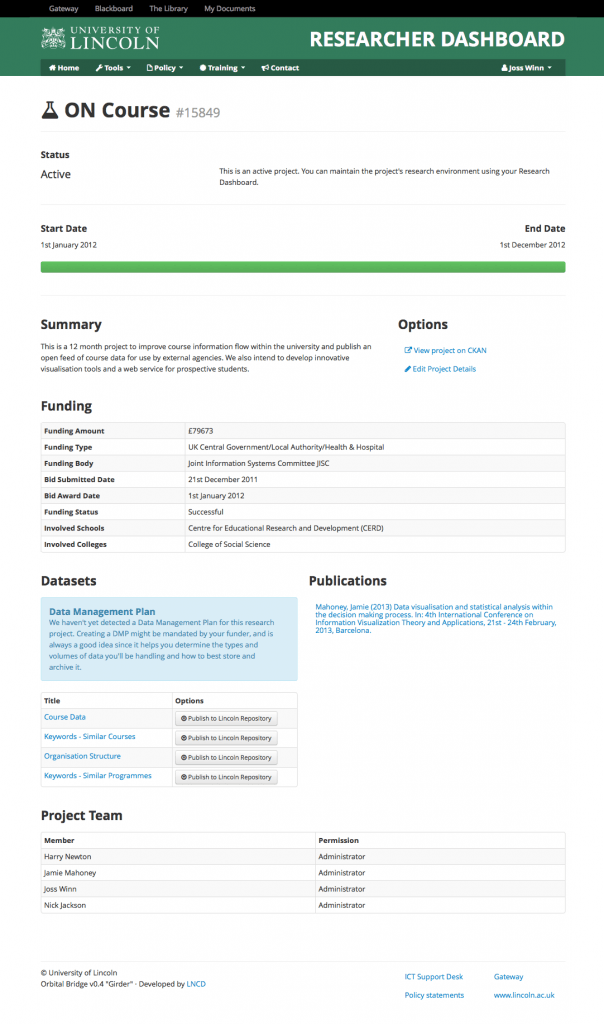At the JISC MRD final programme meeting, I demonstrated the work we’ve done to integrate disparate research information systems at Lincoln and begin to develop a workflow between them for the deposit of datasets. Below, are two videos which run through the website and application that was called ‘Orbital Bridge’ and is now referred to as the ‘Researcher Dashboard‘.
The screencasts are a bit rough and ready – I’m no voice actor – but it should give you an idea of what we’ve done and the way that this work points forward to further integration and an increased aggregation and re-presentation of research information, of which datasets are a part. Feel free to post questions in the comments box below. Thanks.
The first video (7 mins) discusses the website in general and the ‘My Profile’ section of the Researcher Dashboard.
The second video (13 mins) discusses the ‘My Projects’ section of the Dashboard and gives an overview of the integration and workflow between different research information systems. I haven’t gone into any detail on the actual use of CKAN as we’re using a fairly vanilla 1.7.2 version, with just some additional branding and authentication work. If you’re interested in how CKAN works, I recommend that you try http://demo.ckan.org. Much of our development with CKAN up to now has been through interaction with its APIs to set up groups and users from the Researcher Dashboard and pull information about datasets from CKAN into the Dashboard.
We’re just about to advertise for a Research Services Developer post (c. £30K/yr), and look forward to that person picking up this work and developing the application and CKAN further. More details on the new role will be posted here in due course.
There are a couple of things that I left out of these videos that I should also mention:
Information about a project in the Researcher Dashboard can be edited from the project page and provides a place where researchers can add further information about the project which is not being collected by the Awards Management System. It also allows the Researcher to add people to the project and assign them roles so they can edit that information, too.If I haven’t emphasised it enough already, one of the ‘features’ of the Dashboard is that it’s an application that allows us to collect more information about research at Lincoln and starts to link it all together. For the first time, information about people, projects, funding, research outputs, datasets and metrics are being brought together in a structured way. With this information, we can go on to build other applications (e.g. a database of research expertise) based on information provided by researchers themselves, enhanced by some simple text mining and clever semantic tagging.
Finally, the documentation on the website is managed by a simple ‘content management system’ that we built for Librarians and other staff who support research at Lincoln. All of the training materials are easily accessible to a non-technical user and can be edited on the website or optionally, managed through Github. This way the site’s content can remain up-to-date and accessible to content authors without having to ask developers of the site to add/edit content for them.

